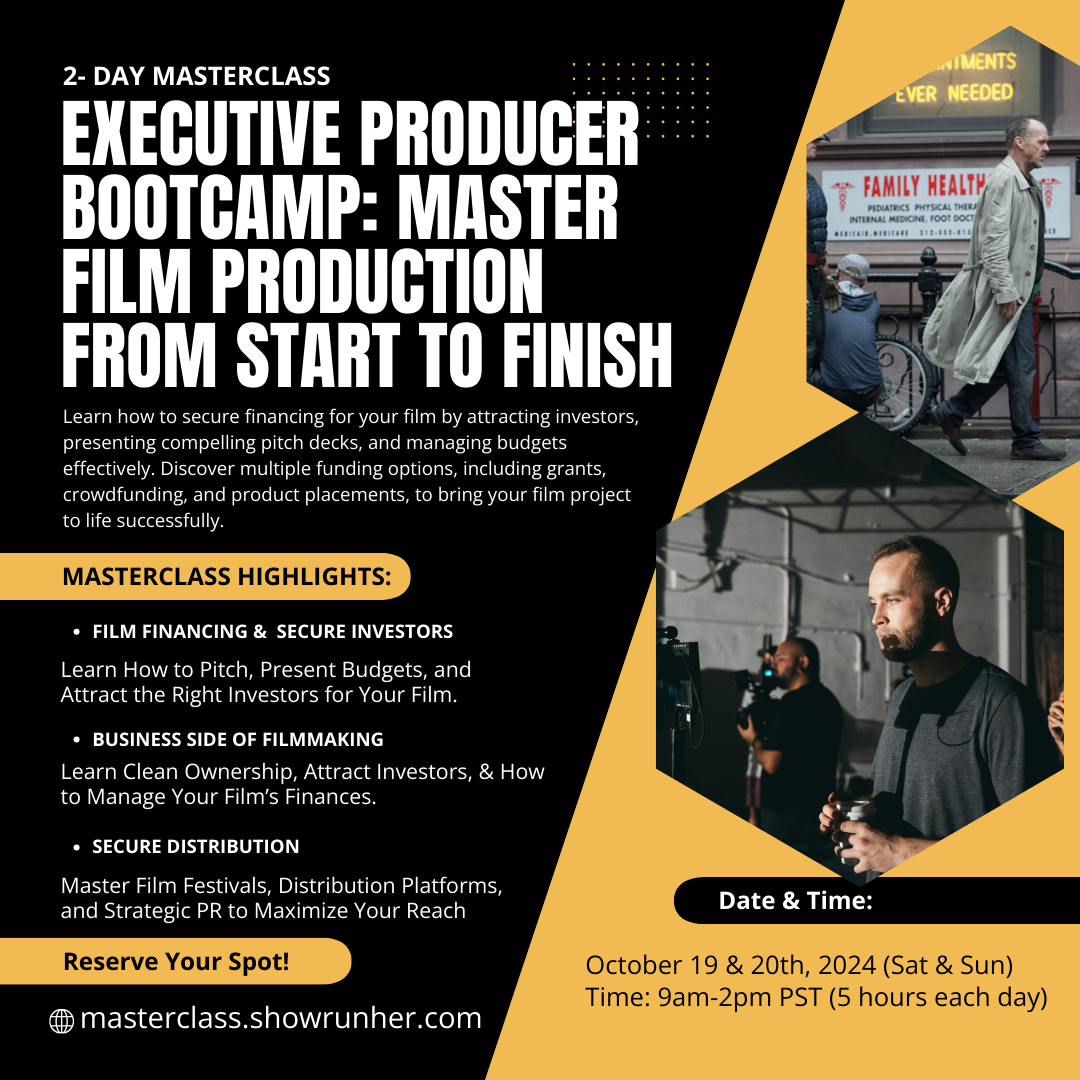Location scouting is an essential component of the filmmaking process, particularly for indie filmmakers who often face the challenge of finding the perfect settings while adhering to tight budgets. The right location can elevate the production value of your film, setting the tone and atmosphere that your story requires. However, securing ideal locations without depleting your resources requires a strategic approach, creativity, and resourcefulness. In this comprehensive guide, we will explore effective strategies for budget-friendly location scouting, offer tips for leveraging personal connections, discuss the potential for obtaining free permits, and provide practical advice for managing free locations.
A film’s location is more than just a backdrop—it’s a character that breathes life into the story, setting the tone and atmosphere for every scene.
Understanding the Importance of Location Scouting
Before diving into the strategies, it’s important to understand why location scouting is crucial to your film’s success. Locations serve as the backdrop to your narrative, contributing to the visual storytelling and overall mood of your film. A well-chosen location can enhance the authenticity and believability of your scenes, while a poorly chosen one can detract from the audience’s immersion.
For indie filmmakers, who often operate with limited funds, finding cost-effective locations that still offer high production value can be challenging. However, with the right approach, it’s possible to discover hidden gems that fit your budget and vision perfectly.
Leverage Personal Connections: Family and Friends

One of the most effective ways to find free or low-cost locations is by leveraging your personal connections. Family and friends can be invaluable resources in this regard, offering their homes, businesses, or properties as potential filming sites. Not only does this save you money, but it also provides a level of trust and flexibility that you might not find with commercial locations.
- Homes and Apartments: Ask friends and family if they would be willing to let you use their homes or apartments as filming locations. This can be particularly useful for scenes set in domestic environments. Make sure to be clear about the time commitment and any necessary preparations, such as moving furniture or adding props.
- Businesses: If someone you know owns a business—such as a café, restaurant, store, or office—consider asking if you can film there during off-hours. In exchange, you can offer to feature their business prominently in the film’s credits or even within the film itself as part of the storyline.
- Outdoor Spaces: Friends or family members who own land, farms, or properties with unique outdoor spaces can be excellent resources for filming exterior scenes. From gardens and forests to fields and barns, these locations can add production value to your film without the high costs associated with renting public or commercial spaces.
Approaching Businesses: Requesting Free Locations
When it comes to securing free locations from businesses, the key is to craft a compelling pitch that highlights the benefits for them. Many business owners might be hesitant to allow filming on their premises, particularly if they’ve never done so before. However, with the right approach, you can persuade them to see the value in participating in your project.
Sample Letter to Businesses for Requesting a Free Location
[Your Name]
[Your Production Company Name]
[Your Contact Information]
[Date]
[Business Owner’s Name]
[Business Name]
[Business Address]
Dear [Business Owner’s Name],
I hope this message finds you well. My name is [Your Name], and I am an independent filmmaker currently working on a new project titled [Your Film’s Title]. We are in the process of scouting locations for the film, and we believe that your [type of business] would be the perfect setting for one of our key scenes.
We are working with a modest budget, and as such, we are seeking to collaborate with local businesses that might be interested in providing their space in exchange for exposure. As part of our film, we can prominently feature your business, which will be seen by a wide audience both through film festival screenings and subsequent digital distribution. Additionally, we are happy to acknowledge your contribution in the film’s credits.
We understand the importance of maintaining the smooth operation of your business, and our team is committed to minimizing any disruptions. We would work closely with you to schedule filming during off-hours or times that are most convenient for you. Our crew is experienced, professional, and respectful of all spaces we work in, ensuring that everything is left exactly as we found it.
Furthermore, depending on the state, we may be able to obtain filming permits at no cost, which could simplify the process even further. We will handle all necessary paperwork and logistics to ensure that the shoot goes smoothly.
Thank you for considering this opportunity. I would love to discuss this further and answer any questions you may have. Please feel free to contact me at [Your Contact Information] at your earliest convenience.
Looking forward to your positive response.
Sincerely,
[Your Name]
[Your Production Company Name]
Exploring Free Permits: State-Dependent Opportunities
One of the often-overlooked aspects of location scouting is the potential to obtain free or discounted filming permits, depending on the state in which you are shooting. Many states offer incentives to indie filmmakers, including waiving permit fees or offering streamlined processes for obtaining permits, especially when filming in public or government-owned spaces.

- Research Local Film Offices: Start by researching the film offices in the states or cities where you plan to shoot. Many cities have dedicated film offices that assist filmmakers with permits and may offer incentives for independent projects. Some even provide location databases that list public spaces available for filming.
- State-Specific Incentives: Some states, like New York and California, offer specific programs aimed at supporting indie filmmakers. These programs may include free permits, tax incentives, and other benefits. Check with the state’s film office to see what’s available.
- National Parks and Public Spaces: If your film requires outdoor settings, consider national parks, forests, or other public lands. The National Park Service, for example, has specific guidelines for filming, and some locations may offer permits at no cost for low-impact shoots.
- Nonprofit and Educational Projects: If your film has a nonprofit or educational component, you may be eligible for additional exemptions or reduced fees. Be sure to highlight this in your permit applications.
Maximizing Your Location Use: Tips for Efficient Shooting
When you’ve successfully secured a free location, it’s crucial to handle it with care and professionalism to ensure that the experience is positive for both you and the location owner. Here are some tips to maximize your location use while minimizing disruptions:
- Plan Ahead: Create a detailed shooting schedule that outlines exactly when and where each scene will be shot. Share this schedule with the location owner to ensure they are aware of the timeline and can prepare accordingly.
- Minimize Crew and Equipment: Keep your crew and equipment to a minimum to reduce the impact on the location. A smaller footprint means less disruption and a faster setup and breakdown time.
- Set Expectations: Communicate clearly with the location owner about what to expect during the shoot. This includes the number of people on set, the duration of the shoot, and any special requirements, such as moving furniture or setting up lights.
- Respect the Space: Treat the location with the utmost respect. This means following all the rules set by the owner, cleaning up after the shoot, and being mindful of noise levels and other potential disturbances.
- Leave No Trace: Ensure that you leave the location exactly as you found it—or better. This means cleaning up thoroughly, returning any moved items to their original places, and addressing any concerns the owner may have. A positive experience increases the likelihood of being welcomed back for future projects.
Creative Strategies for Budget-Friendly Locations
Beyond leveraging personal connections and requesting free locations from businesses, there are additional creative strategies you can employ to find budget-friendly locations:
- Public Spaces: Public parks, libraries, community centers, and other publicly accessible spaces can be great options for filming. These locations often require a simple permit process, and the fees can be minimal or waived for small indie productions.
- Underused Spaces: Look for spaces that aren’t in high demand, such as unused office buildings, warehouses, or vacant lots. These spaces can often be rented for a low cost or even used for free if the owner is eager to have the space occupied, even temporarily.
- Time Your Shoot: Consider filming during off-peak times, such as early mornings, late nights, or weekdays. Businesses and public spaces may be more willing to offer their locations for free or at a reduced cost during these times.
- Barter and Trade: If you have skills or services to offer, consider bartering in exchange for location use. For example, if you’re skilled in photography, you could offer to take professional photos for the business in exchange for using their space.
- Collaborate with Local Artists: Artists, musicians, and other creatives often have access to unique spaces that aren’t available to the general public. Partnering with local creatives can provide you with access to these spaces, often at little to no cost.
The Role of Location Managers
For larger indie productions or those with slightly more budget flexibility, hiring a location manager can be a worthwhile investment. A location manager specializes in finding, securing, and managing locations, handling all the logistics so you can focus on directing and producing your film.
- What Does a Location Manager Do? Location managers scout potential locations, negotiate terms with location owners, secure permits, and manage the logistics of the shoot. They ensure that the locations are ready for filming and that all legal and logistical requirements are met.
- When to Hire a Location Manager: Consider hiring a location manager if your film has multiple locations, complex logistics, or if you simply don’t have the time to handle location scouting yourself. While this adds to your budget, it can save time and stress in the long run.
- Benefits of Professional Management: With a location manager, you can streamline the scouting process, handle legalities efficiently, and ensure that each location is prepared for shooting. This allows you to focus on your creative vision without worrying about logistical details.
Negotiating with Location Owners
Effective negotiation is key when securing locations, especially when you’re aiming to get them for free or at a reduced cost. Here are some tips to help you negotiate successfully:
- Highlight Mutual Benefits: Emphasize how the location owner can benefit from the arrangement. This could be through exposure, credits in the film, or even free services such as photography or promotional materials.
- Be Transparent About Your Budget: Be honest about your financial limitations and explain that you’re working on an indie project. Many business owners are willing to support independent artists, especially if you approach them with sincerity.
- Offer Flexibility: If you can be flexible with your shooting schedule, it may make the location owner more willing to accommodate your request. Suggest filming during off-hours or slow periods to minimize the impact on their regular operations.
- Establish Clear Terms: Make sure both parties are clear on the terms of the agreement. This includes the exact times and dates of filming, what areas of the location will be used, and any restrictions or special requests from the owner.
- Put It in Writing: Once an agreement is reached, draft a simple contract outlining the terms. This protects both you and the location owner, ensuring that everyone is on the same page and reducing the risk of misunderstandings.
Handling the Legal Aspects: Permits and Insurance
While some locations may be secured informally, it’s important to ensure that all legal aspects are covered, particularly when filming in public or commercial spaces.
- Obtaining Permits: Depending on your location, you may need to secure permits for filming, particularly if you’re using public spaces, streets, or parks. Research the specific requirements for your city or state and apply for the necessary permits well in advance.
- Insurance Considerations: Some location owners may require you to have liability insurance to cover any potential damages during filming. This is especially common with commercial properties. Look into short-term insurance options that are designed for indie filmmakers to ensure you’re covered.
- Handling Sensitive Locations: If your film involves sensitive topics or controversial scenes, be upfront with the location owner. Make sure they are comfortable with the content and that you have all necessary approvals and permits.
Maximizing Location Value: Multi-Use Spaces
Another effective strategy for budget-friendly location scouting is to maximize the use of each location. Multi-use spaces allow you to shoot multiple scenes in different areas of the same location, reducing the need to secure additional sites.

- Transforming Spaces: With a bit of creativity, you can transform a single location into multiple settings. For example, a large house could serve as several different characters’ homes by simply changing furniture, décor, and camera angles.
- Using Different Angles: Shooting from different angles or in different lighting conditions can make the same location look entirely different. This is particularly useful for small spaces that need to serve multiple purposes in your film.
- Creative Set Dressing: Set dressing and props can significantly alter the appearance of a location. By changing the décor or adding specific elements, you can create the illusion of a completely different environment within the same space.
The Power of Post-Production
Post-production offers additional opportunities to enhance or alter your locations. Visual effects (VFX), color grading, and other post-production techniques can transform a location and add production value without the need for elaborate or costly sets.
- Enhancing Locations with VFX: Simple VFX can be used to remove modern elements from a scene, extend backgrounds, or create entirely new environments. This allows you to use budget-friendly locations while still achieving a high-end look.
- Color Grading for Atmosphere: Color grading can change the mood and tone of a location, making it look warmer, colder, or more dramatic depending on your film’s needs. This can help unify the look of different locations or make a single location serve multiple narrative purposes.
- Sound Design: The right sound design can also enhance a location, adding ambient sounds that make the environment feel more alive or authentic. For example, adding city noise to a quiet street scene can make it feel like it was shot in a bustling urban area.
Final Tips for Indie Filmmakers
As you wrap up your location scouting and prepare to film, keep these final tips in mind to ensure a smooth and successful production:
- Scout with Your Team: Whenever possible, scout locations with key members of your team, such as your director of photography (DP) and production designer. They may see potential in a location that you hadn’t considered.
- Document Everything: Take detailed photos and videos of each potential location, noting the time of day, lighting conditions, and any logistical considerations. This documentation will be invaluable when planning your shoots.
- Plan for Contingencies: Always have a backup location in mind, in case something goes wrong with your first choice. Weather, scheduling conflicts, or unexpected issues can arise, so having a plan B ensures that your production stays on track.
- Stay Flexible: While it’s important to have a clear vision, being flexible and adaptable can lead to unexpected opportunities. Sometimes, a location that wasn’t your first choice can turn out to be the perfect setting with a little creativity.
- Build Relationships: Cultivating good relationships with location owners can pay off in the long run. If you handle a location well and leave a positive impression, you may be able to return for future projects or get recommendations to other great spots.
Conclusion: The Art of Budget-Friendly Location Scouting
Location scouting on a budget requires a combination of creativity, negotiation skills, and resourcefulness. By leveraging personal connections, approaching businesses with compelling offers, and exploring free or discounted permits, you can secure fantastic locations that elevate your film without draining your budget. Remember to handle all legalities, treat locations with respect, and plan your shoots efficiently to maximize the value of each location.
With careful planning and a bit of ingenuity, you can find the perfect settings that bring your story to life, all while staying within your financial means. After all, a great location isn’t just a backdrop—it’s a vital part of your film’s narrative, adding depth and authenticity to every scene.











